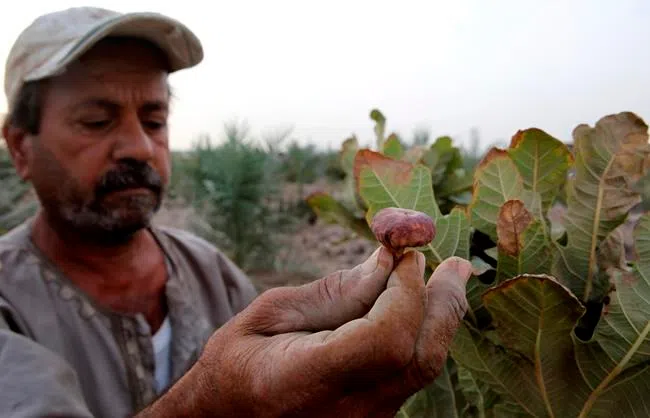
Water crisis salts the earth in Iraq’s long-neglected south
BAGHDAD — Qassim Sabaan Ali has spent the past 15 years tending to orchards in southern Iraq, only to see them wither or die as saltwater has seeped into the once-lush soil.
The southern city of Basra was once known as the “Venice of the East” because of its freshwater canals, and Iraq itself is still known as the “Land Between the Two Rivers” — the Tigris and the Euphrates — which have nourished civilizations since antiquity.
But upstream dams in Turkey, Syria and Iran have shrunk the rivers and their tributaries, seasonal rainfall has dropped and infrastructure has fallen into disrepair. The result is an acute lack of freshwater that has allowed a salty tide from the nearby Persian Gulf to advance north from the Shatt al-Arab waterway — the confluence of the Tigris and the Euphrates that Basra residents depend on — and seep into once-lush farmland.
Ali’s fig, apple and palm trees are dying off, and the water from the taps is so salty and polluted it cannot even be used for cooking or washing.